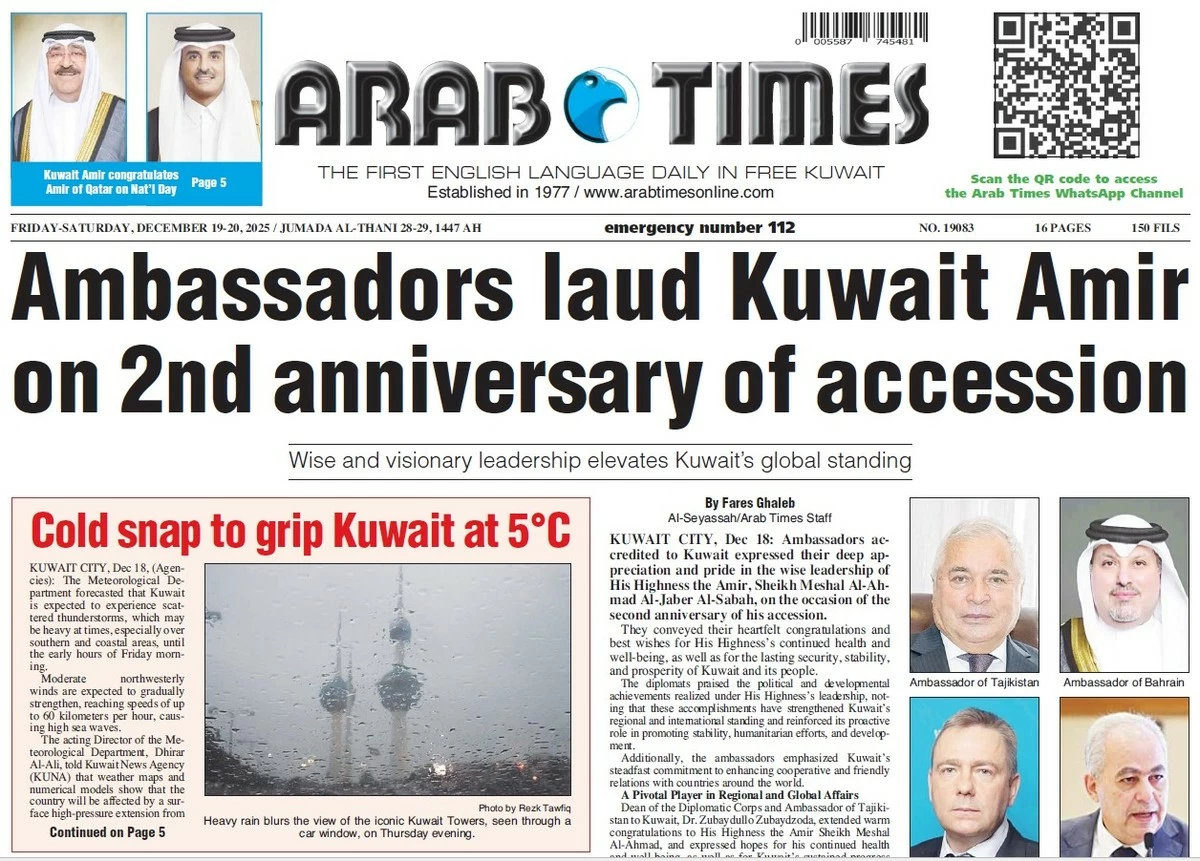25/07/2020
25/07/2020
Strong reforms and govt support needed to save sector
The Kuwait oil industry is limited and shackled with all sorts of interferences that could limit its daily works and strangle its decisions. The top management may just decide to quit with no apparent support after being left alone to face the MPs on an almost monthly basis.

The parliamentary committee task force investigated the violations in the oil sector and finalized its report after holding 22 meetings. It resulted in 90 recommendations which will definitely take years to implement. It may cause the referral of some cases to the Public Prosecution along with more than nine executive leaders of the oil sector. Some of these cases are related to recruitment of relatives’ sons and brothers without advertising or making public announcements, allowing about 80 percent of the evaluation to be based on personal interview. This is a mere indication about hiring one particular person.
The other major subject of loss is the Vietnam Refinery – a project in which KPC owns 35 percent but has incurred major losses. Also, our overseas upstream investments company by KUFPEC accordingly ruled out the recommendation to not invest in the two oil fields in North Sea – Alma and Galia (the names of the original owner’s daughters), which are now not possible to sell, resulting in more than $1 billion loss. The study was based on an estimate of oil hitting $100 per barrel, to be viable with returns of over 13 percent per annum.
However, the whole deal is now dead and evaporated, and it is unable to sell the two oil fields. A total of 22 sessions and meetings were held with more than 100 of top KPC and senior executives, with some details that cause great frustration and can distract them from performing their duties. Of course, none of us are against any form of questioning and interviewing, or to open and free discussions without any limits.
However, these sessions involved getting into such small and minor details which came from inside the organization. Our MPs should have some confi- dence as the 90 recommendations will simply distract the oil sector employees from doing their daily work, as Kuwait oil sector is not far behind.
We do agree there have been mistakes including major ones and some negligence. This is also due to our own fault of insisting on retiring Kuwaitis the moment they complete 30 years of service or reach the age of 60 when they are at the peak of their performance. It is also to do with insisting that more than 80 percent of the oil employees must be Kuwaitis in the oil section, who will eventually be dispensed of when they reach 60 years of age or complete 30 or less years of service.
We are all at fault and we cannot blame the oil sector alone. What about our MPs who insist on maintaining a certain quota for hiring Kuwaitis in the oil sector? They are interfering in promotions and pushing their own candidates. Frankly, it is becoming impossible to work in KPC and its affiliated companies under such an atmosphere and daily scrutiny. The performance will certainly go down further and less decisions will be taken. The solution is not readily at hand; it must come from the top, which is from the government with firm hands.
However, who is defending the KPC top executives and staff today against whom they have turned and left alone to sink? Since oil is our sole source of income, should we enhance our returns on oil through our guards in the oil sector? Of course, mistakes were made. Delays in Kuwait are nothing new. It is normal in every part of our government’s companies to have a long approval process.
KPC may be at fault, but at the same time it cannot refuse the daily demands of our respected MPs for recruitments in the oil sector by any means, as the corporation has to nod “Yes” to them. Otherwise, both will lose their jobs including the MP who will lose his seat in the coming election. Can we really save our oil industry and make it more competitive? That is certainly not possible without any strong reforms and support. Alas, no one is available now. In the end, it is our oil industry that is damaged.
By Kamel Al-Harami Independent Oil Analyst


